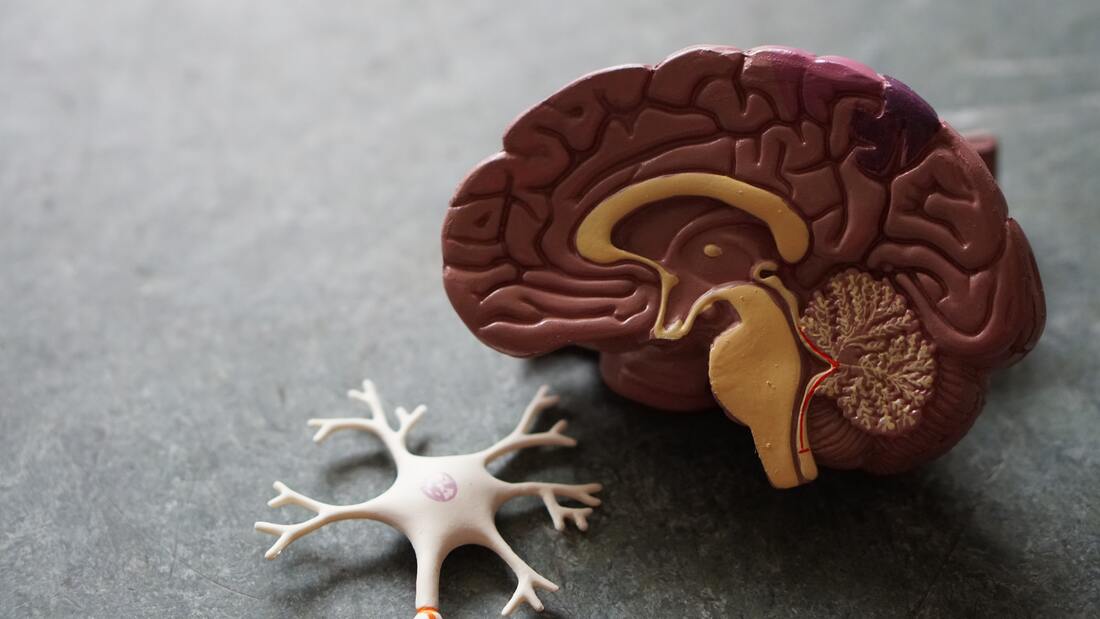|
For centuries, Eastern thinkers and mystics have practiced meditation to better appreciate the nature of the universe around them and to find balance within themselves. Recently, there has been a lot of hype in the news about something called ‘mindfulness meditation’, but what exactly is mindful meditation and what can it do for humans’ health and well-being?
Mindfulness meditation is a series of exercises that are performed to help relieve stress by taking deep breaths and training one’s mind to pay attention to our thoughts. Recently, neuroscientists have found that practicing this form of meditation activates a special brain network called the default mode network (DMN). In fact, after scanning the brains of monks trained in meditation techniques to a healthy control group of non-monks, it was found that the activity of the DMN was much greater! Researchers suggest that the mindfulness training in these brain regions is associated with greater attentional control, better emotional regulation, and decreased stress responses; factors that are especially important now in helping to manage the chronic stress of the pandemic. In addition, it has been found useful when treating individuals with certain neurological and psychiatric conditions and has improved their quality of life by helping them to become more proactive in learning to combat their stress. So, those Eastern mystics may be on to something with regards to mindfulness meditation. While there remains much research to fully answer how different forms of meditation work, mindfulness meditation may be a good way to help lessen the negative long-term impacts of stress on our health and wellbeing. To learn more about this interesting subject, please be sure to see: https://www.psychologytoday.com/ca/blog/your-meditative-mind/201808/what-the-neuroscience-meditation-does-and-doesn-t-show https://www.nature.com/articles/nrn3916 https://www.ncbi.nlm.nih.gov/pmc/articles/PMC4807201/ https://www.ncbi.nlm.nih.gov/pmc/articles/PMC3004979/ https://pubmed.ncbi.nlm.nih.gov/30732832/ https://www.ncbi.nlm.nih.gov/pmc/articles/PMC4253124/ https://pubmed.ncbi.nlm.nih.gov/30525995/
1 Comment
We spend almost one third of our lives sleeping.
Why? Interestingly, researchers still do not know. One potential reason seems to be with the way our brains manage our memories. Researchers have found that during sleep, our brains are actively strengthening tightly linked connections and loosening weaker links, presumably to help store and manage our memories. So how can we get good sleep? Firstly, eat well by having a balanced diet. This helps to make sure that your brain is getting the nutrients it needs to stay healthy. Secondly, lessen your screen time to at least an hour before bed. This is because the brain is quite sensitive to blue light, which can change its sleep-wake cycle. Lastly, it's important to find ways to relax before sleep. By reducing stress through deep breaths or meditation, our bodies and brains can more easily fall asleep. By taking good care of ourselves you might not only find yourself feeling refreshed in the morning, but with an even healthier and energized brain! For some more tips and tricks, be sure to see: https://www.headspace.com/sleep/how-to-sleep-better https://www.mayoclinic.org/healthy-lifestyle/adult-health/in-depth/sleep/art-20048379 https://www.nhlbi.nih.gov/health-topics/sleep-deprivation-and-deficiency https://www.nhlbi.nih.gov/health-topics/how-sleep-works https://www.nia.nih.gov/health/good-nights-sleep Feeling a bit more stressed than usual? You are not alone!
Practically everyone is feeling ‘pandemic burn-out’. As such, many experts are encouraging us to look after our mental health. This means taking time to relax. This is especially important for children. They need social interactions to help them grow socially and emotionally. Typically, when humans feel stressed, our bodies respond by going into “fight or flight” mode. Here, our bodies make chemicals that help us quickly avoid threats. But if our bodies are exposed to stress for a long time, our stress reactions can become harmful. This is how stress makes it easier for us to become sick. Some tricks that seem to help manage our stress levels include going on nature walks, getting good sleep, and, importantly, talking with others about our feelings. So, during COVID, let's take care of each other and follow the science to stay well and protected! The following are a bunch of resources that you might be interested in reading more about: https://www.ncbi.nlm.nih.gov/pmc/articles/PMC7510529/ https://www.sickkids.ca/en/news/archive/2021/impact-of-covid-19-pandemic-on-child-youth-mental-health/ https://www.aboutkidshealth.ca/article?contentid=3883&language=english https://bmjopen.bmj.com/content/11/1/e042871 https://www.npr.org/2019/10/23/772789491/how-to-help-a-child-struggling-with-anxiety https://www.anxietycanada.com/learn-about-anxiety/anxiety-in-children/ https://www.canada.ca/en/public-health/services/diseases/2019-novel-coronavirus-infection/mental-health.html One of the strangest clinical cases in neuroscience comes from the case study of Dr. Oliver Sacks about his patient, Mr I.
Mr. I was a music teacher who was unable to tell whether what he was looking at was a person or an object. For example, Mr. I confused children’s heads for fire hydrants and his own wife for a hat! Recent discoveries in neuroscience suggest that Mr. I’s brain may have made a mistake because of a special part of the brain, called the fusiform face area (FFA), that is responsible for perceiving faces! This area was recently discovered to be directly responsible for perceiving faces in human patients who were about to have brain surgery. When electrodes were put in, the patient couldn’t tell whether a ball was a human face or not! This experiment emphasizes that while brains are dynamic, they are also very fragile. Indeed, sometimes it is possible for the neural circuitry in the brain to make big mistakes, just like Mr. I! To learn more about this fascinating research, please be sure to check out: https://www.ncbi.nlm.nih.gov/pmc/articles/PMC2190246/ While music is a combination of individual notes, it is also unique. Why? As we listen to our favourite songs, it often seems as though we are being rewarded with a very special, meaningful, and personal experience.
Recent findings in neuroscience suggest that this is exactly what is happening! It turns out that music can make us feel rewarded because it activates the “reward pathway” in our brains. Scientists think that by activating this pathway, our brains can detect differences in the predictions of how a melody will sound. It also seems that melodies that produce a greater release of the neurotransmitter dopamine — our brain’s main signal for the detection and/or expectation of a pleasant response — bring about a greater feeling of reward! In addition, music has a few other special properties. For starters, there does not appear to be a special "music" area of the brain. Instead, music affects the brain in its entirety. This means that whatever music is doing in the brain is not only on a small local scale, but also affecting our brains on a higher scale too! Music has also been found to be resilient to memory loss! This is especially important for Alzheimer’s’ disease, where several researchers are now actively testing whether music therapy might be able to help improve the quality of life of Alzheimer's patients. So, while there remains much more research to be explored, one thing is for certain; music is very special and important to our brains! For more information about this interesting topic, please be sure to check out: https://www.ucf.edu/pegasus/your-brain-on-music/ https://www.youtube.com/watch?v=HRE624795zU https://www.youtube.com/watch?v=R0JKCYZ8hng https://www.health.harvard.edu/mind-and-mood/music-can-boost-memory-and-mood https://kids.frontiersin.org/articles/10.3389/frym.2017.00005 https://alzheimer.ca/greybruce/en/programs-services/music-memories Have you ever wondered if there was a secret way to help you do well in school? That is, a special technique that could help you focus? Or grasp complex ideas? Or do well on tests? According to Dr. Angela Duckworth, it all comes down to good old fashioned ‘grit’. That is, refusing to give up when faced with challenges and difficulties. She suggests that students with grit do better in school than students without it, and that grit helps them to become happier and healthier adults.
While researchers are uncertain whether grit is something that we are born with, or if it is something that can be learned, they all agree that students perform best when they study every day and when distractions like television, music, and cell phones are minimized. It also turns out that taking small breaks while studying is a great study habit to develop. This technique works by teaching students how to solve a difficult task by breaking it down into smaller chunks. By learning how to focus on one task at a time, students slowly develop a better sense of self-control. Researchers also think that adults can help students improve learning habits by helping to set appropriate goals and expectations for each individual student. With patience and encouragement, any student can become a more confident life-long learner. The most important lesson to remember is that success in school comes from having a can-do attitude and a study environment that encourages inquiry, imagination, and student well-being. For more information about this interesting topic, please be sure to check out: https://www.ncbi.nlm.nih.gov/pmc/articles/PMC4737958/ https://www.ncbi.nlm.nih.gov/pmc/articles/PMC6876246/ https://pubmed.ncbi.nlm.nih.gov/31391586/ https://www.psychologicalscience.org/publications/observer/obsonline/self-control-may-lie-at-the-heart-of-student-success.html https://www.psychologicalscience.org/observer/dweck-growth-mindsets If you’ve ever seen the movie Eternal Sunshine of the Spotless Mind, you’ll no doubt be familiar with the way the characters choose to have memories erased from their brain. They visit a doctor, wear a special piece of headgear, and poof! All the bad memories are gone. Can this be done in real life? Well, the answer is complicated... Although we are a long way away from being able to selectively erase memories in humans, researchers have done so in rats for over a decade. How do they do this? Firstly, making a memory requires protein synthesis, among other things. Proteins are the fundamental building blocks of your body and your brain. There are millions of different kinds of proteins, each with its own highly specialized function. When your brain encodes a memory for the long term, your neurons make specific new proteins to form stronger links between the activated neurons to stabilize the memory in your brain. This is called ‘memory consolidation’. It turns out, however, that our memories are not like video cameras that record our actual experiences. Instead, throughout our lives, our brains are constantly updating our memories with new information. This occurs through a process of the destabilization of the wiring of those neurons that store a particular memory. When a memory is reactivated, it is removed from its stable state, allowing it to be edited. Because memories are so delicate, neuroscientists have been examining the possibility of removing ‘bad’ (something scary, sad, or upsetting) memories that humans encounter over their lifetimes. Neuroscience research using mice has found that by stopping protein synthesis of a special receptor (called an AMPA receptor) right after a mouse experiences an electrical shock to its foot, it is possible to remove the negative memory! Researchers have also been able to remove bad memories in humans using small amounts of electricity to the brain during the reconsolidation of memories. In addition, therapies involving specialized medication to alter protein formation for memory development — as well as talk-therapies — have been found to be useful in alleviating the negative memories in people suffering from post-traumatic stress disorder (PTSD) or severe anxiety. While the process of removing memories remains an area of interest for researchers, it is important to remember that our memories, good and bad, are what make us who we are. As a result, the ability for humans to remove their memories should be carefully considered because many of our bad memories not only serve to teach us more about ourselves and our world, they also help us to grow as individuals across our lifetimes by leading us to discover new life pathways, environments, and opportunities. Without these bad memories, we would never have had the opportunity to learn how to develop the courage and expertise to overcome hectic life challenges, nor the ability to recognize our weaknesses and learn how to improve upon those aspects of ourselves that make us so very hopelessly, undeniably, and characteristically, human. For more information on this thought-provoking subject, be sure to check out the following links below:
Photo by Debby Hudson on Unsplash
Photo by Robina Weermeijer on Unsplash For the longest time, neuroscientists thought that human beings could not develop any new brain cells after birth. This is because most human brain cell birth (or neurogenesis), occurs before humans are born, during the first 12 weeks of pregnancy. Once a human is born, the brain’s development shifts its focus to creating new connections between its pre-existing cells or by pruning unnecessary ones. But in the 1960s, scientists found something remarkable: rats could generate new neurons after birth! It was not until the late 1990s, however, that evidence of neurogenesis was confirmed in adult mammals, including humans.
Present research suggests that human neurogenesis occurs in two areas of the brain, including the hippocampus. Among its many roles, the hippocampus is a major center for memory. This discovery was ground-breaking because it offers new possibilities and hopes of repairing damaged tissue in neurological disorders such as Parkinson’s disease and spinal cord injury. Some experimental success has even been found in animals! Nevertheless, there is still much to discover about the potential uses of human neurogenesis. These achievements are only the beginning of a longer journey to better understand the fundamental mechanisms behind how the brain develops over the entire human lifespan. Fascinated by the read? To learn more about the story of neurogenesis, click on the link here. The presence of healthy bacteria in your gut has been known to help with digestion and many other aspects of gut health. However, you may be surprised to know that these same microbes can also affect the health of your brain!
The collection of microbes found in all individuals is known as the microbiome. The microbiome produces many molecules that can travel and talk to the brain directly. The molecules do so by acting on certain brain cell receptors or acting as signals to activate the body’s immune system. When the body’s immune system (a system that protects the body from infections) reacts to the chemical messages produced by the microbiome, brain cells are affected. These reactions, in turn, result in changes in brain health. Some of these immune cells include microglia, a type of brain cell that is particularly sensitive to molecules produced by the microbiome. In fact, researchers suggest that microglia play a critical role in early brain development, by shaping how neurons grow and form the connections that create our fully functioning brains. Interestingly, as your diet is ultimately what affects the microbiome, it would seem that the old adage, “you are what you eat”, had it right all along; especially with respect to the brain! For more cool resources on this topic, be sure to check out the links below: BrainReach is a non-profit outreach program that provides monthly interactive neuroscience lessons for students in Grades 4 and 9. If you are a passionate and enthusiastic graduate student who would like to teach children about the brain and cultivate their enthusiasm for science, please consider volunteering with BrainReach this year!
You can register to volunteer at: https://forms.gle/7C7QxLJo83u32jsH8. The deadline to register is October 9th, 2020. Please note: Due to COVID-19, all sessions will be held via Zoom, beginning in January. We will provide additional training for how to conduct lessons and activities using Zoom. For more information, please see the attached flier, visit our website at: http://www.mcgill.ca/ipn/brainreach, or email us at: ipnbrainreach@gmail.com. |
Archives
June 2022
|





 RSS Feed
RSS Feed